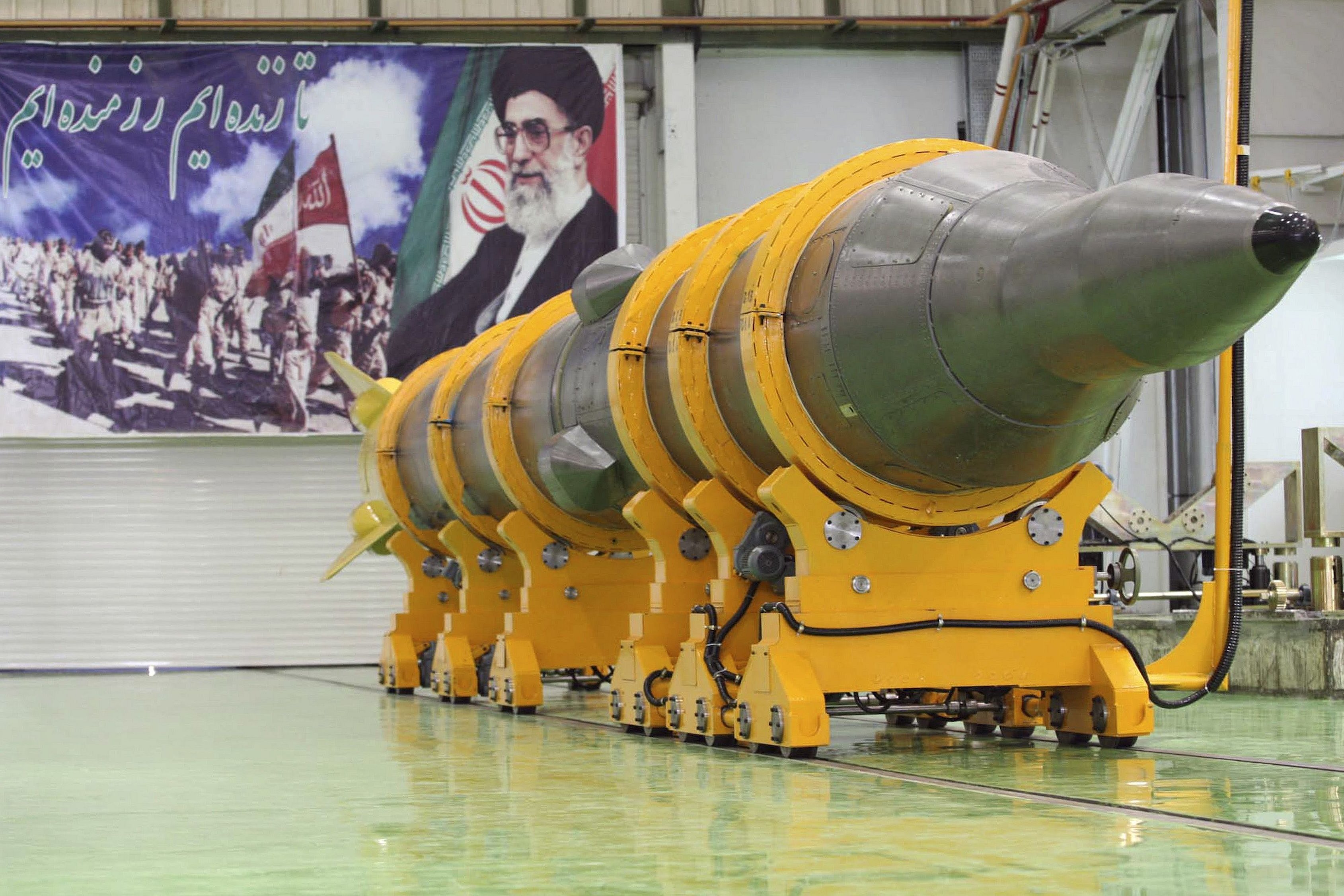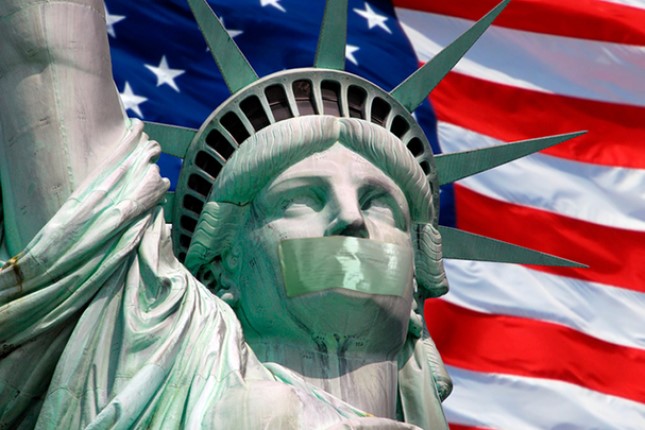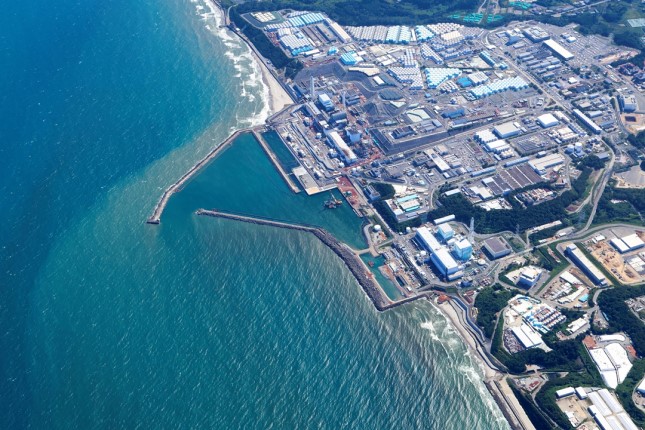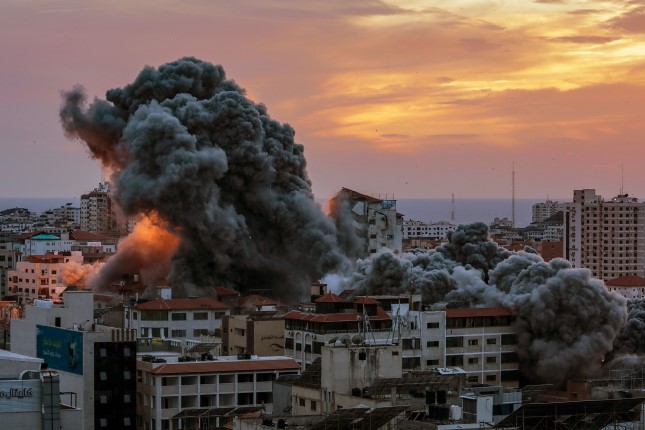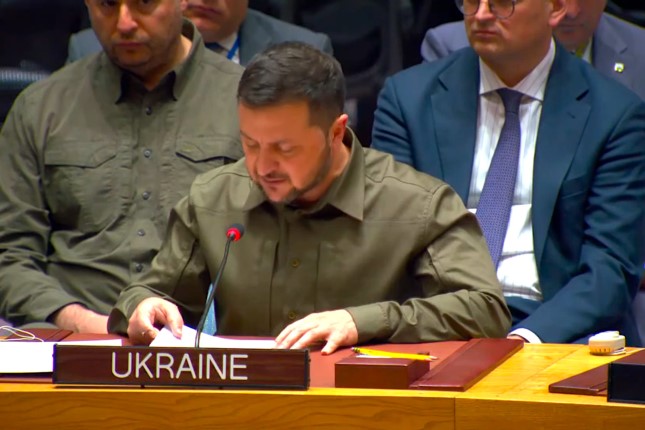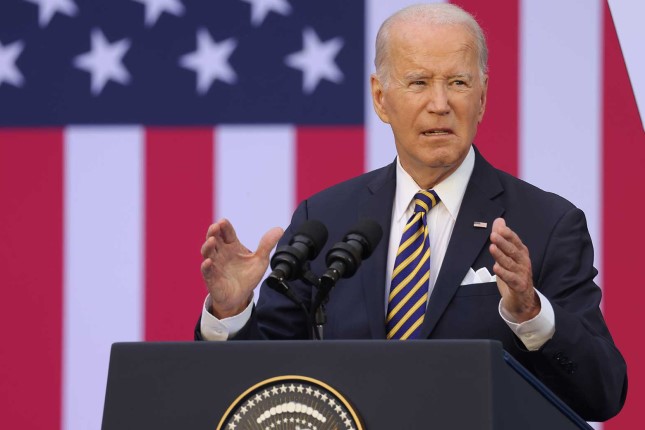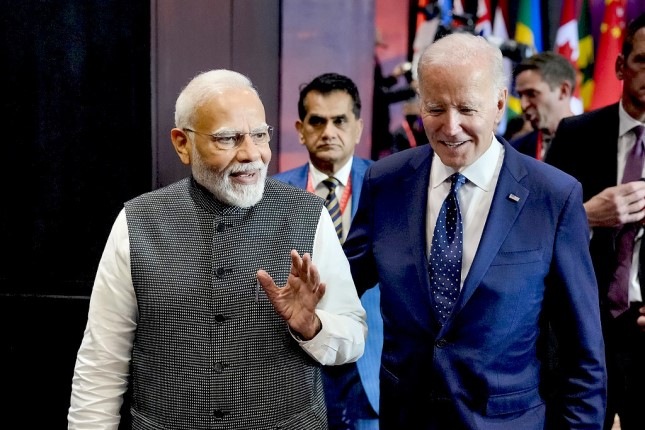That’s all there is.” So, negotiations should be successful because Iran neither has, nor are they pursuing, a nuclear weapon.
The United States has for years threatened that “all options are on the table,” including “bombing the likes of which they have never seen before,” if Iran doesn’t come to an agreement that guarantees they will not pursue a nuclear bomb. But Iran signed precisely such an agreement in 2015 with the Joint Comprehensive Plan of Action (JCPOA). It was Donald Trump and the United States, and not Iran, that illegally broke that agreement.
Broad and unquestioning public acceptance that Iran is pursuing a nuclear weapon is build upon what A.B. Abrams has called a “greater vilifying metanarrative.” The U.S. and its partners, both government and media, repeat a claim so often that a foundation is built in the public imagination upon which current accusations are easily established.
But next time the government or media feeds you the steady diet of evidence free claims that Iran is building a bomb, remember two things. Iran is not building a bomb. And, despite what you are being told, no one really believes that they are.
From the birth of the Islamic Republic of Iran, the building of nuclear weapons has been banned by a law higher even than civic law. Nuclear weapons, chemical weapons, and any weapons of mass destruction are haram: forbidden by God.
The supreme leadership of Iran has always ruled that nuclear weapons are a violation of Islamic morality. The founder of the Islamic Republic of Iran, Ayatollah Ruhollah Khomeini, first and consistently laid down this ruling; his successor, Ayatollah Ali Khamenei, has consistently reiterated it. Khamenei has insisted that “from an ideological and fiqhi [Islamic jurisprudence] perspective, we consider developing nuclear weapons as unlawful. We consider using such weapons as a big sin.” In 2003, Ayatollah Khamenei issued a fatwa, an official religious ruling, that declared nuclear weapons to be forbidden by Islam. “There is complete consensus on this issue,” said Grand Ayatollah Yusef Saanei, who, before his death in 2020, was one of the highest-ranking clerics in Iran. “It is self- evident in Islam that it is prohibited to have nuclear bombs. It is eternal law, because the basic function of these weapons is to kill innocent people. This cannot be reversed.”
Iran has proven its dedication to the prohibition against weapons of mass destruction. In 1982, Iraq rained chemical weapons down on Iran. The Iraqis would later confess to UN inspectors that they had fired approximately 100,000 chemical weapons on Iran. The cost was tragic: 20,000 Iranians were killed by the chemicals and as many as 100,000 more suffered serious injuries from exposure.
Iran did not respond. They could have. But they restrained on moral grounds: chemical weapons, the Ayatollah declared in a fatwa, were haraam, forbidden by God.
When Iran signed the 2015 JCPOA nuclear agreement, they committed that religious law to civil law. Iran’s Foreign Minister, Seyed Abbas Araghchi, recently reminded an American audience in an opinion piece in The Washington Post that the agreement contains the “vital commitment” that “Iran reaffirms that under no circumstances will Iran ever seek, develop or acquire any nuclear weapons.”
And, though the U.S. did not keep its word with the JCPOA, Iran did: Iran was completely and consistently in compliance with their commitments under the agreement, as verified by eleven consecutive International Atomic Energy Agency reports.
Not only, for moral and legal reasons, is Iran not building a bomb, no one in the intelligence community believes that they are.
The 2007 National Intelligence Estimate (NIE), representing the collective conclusions of all of America’s many intelligence agencies, said with “high confidence” that Iran was not building a nuclear weapon. The 2011 NIE said that “the bottom-line assessments of the [2007] N.I.E. still hold true. We have not seen indications that the government has made the decision to move ahead with the program”.
That conclusion of U.S. intelligence continues to hold true. The 2022 U.S. Department of Defense Nuclear Posture Review concludes that “Iran does not today possess a nuclear weapon and we currently believe it is not pursuing one.”
In 2023, CIA Director William Burns said that “[t]o the best of our knowledge, we don’t believe that the supreme leader in Iran has yet made a decision to resume the weaponization program.” Burns was saying the same thing a year later when, in October 2024, he said, “No, we do not see evidence today that the supreme leader has reversed the decision that he took at the end of 2003 to suspend the weaponization program… We don’t see evidence today that such a decision [to build a bomb] has been made. We watch it very carefully.”
And nothing has changed to this day. The just published 2025 Annual Threat Assessment, which “reflects the collective insights of the Intelligence Community,” clearly states that U.S. intelligence “continue[s] to assess Iran is not building a nuclear weapon and that [Ayatollah] Khamenei has not reauthorized the nuclear weapons program he suspended in 2003.”
America’s partners don’t believe it either. In 2012, a year after Yuval Diskin retired as head of the Israeli domestic intelligence agency Shin Bet, he said that the public is being mislead about Iran’s pursuit of a nuclear bomb. That same year, Israel’s then Chief of Staff General Benny Gantz said that Iran has not yet decided to manufacture a nuclear bomb and that he doesn’t think they will. Despite continued concerns, one Israeli official told Axios’ Barak Ravid in June 2024 that their “intelligence agencies do not have any indication that Iran’s supreme leader Ali Khamenei ordered the military nuclear program to be resumed.”
The next time American officials or media tell you that Iran is actively involved in a nuclear weapons program, that they are pursuing a nuclear weapon and that they must be stopped even if it means war, consider that there is no evidence for the claim, that no one’s intelligence community claims there is, and that there is a strong historical and religious case against it.
Source: AntiWar.com.
